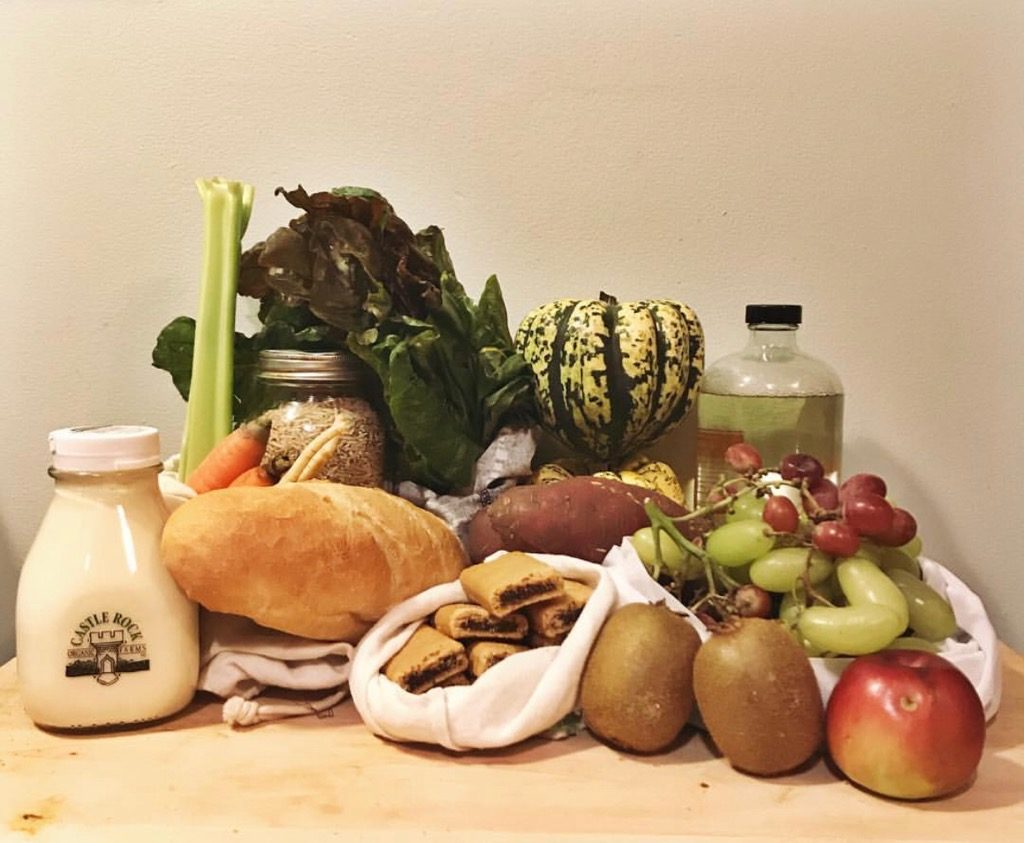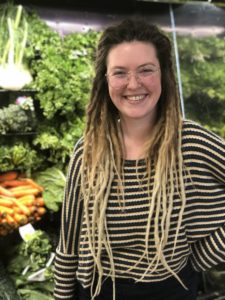Zero-Waste Lifestyle Tips

Whatever your motivation for living a low-waste lifestyle, we have ideas that can help! Jenna Galarneau is a wellness associate at our Minnetonka store. She’s been striving to live a zero-waste lifestyle with her family for the last three years, and in our Q&A, she shares advice for reducing waste without stressing out.

![]()
Q: What is your zero-waste philosophy?
A: I live by the “3 R’s” — reduce, reuse, recycle. The last goal is recycle. The first thing is reduce. Reducing is key: Waste less plastic, packaging, and food by only buying what you need and bringing your own bags. And when you’re driving, plan ahead to reduce trips so that you’re driving less. Always have your bags in the car, all your produce bags and whatever you need. Reuse whatever you can for as long as you can. Only when something becomes unusable do I recycle it.
Remember the “3 P’s”: Proper prior planning — that is, planning ahead to reduce and reuse. Packaging is a great example. By buying larger quantities and planning when and how to use it up, we can eliminate single-use plastics. Simple things like that make a big difference.
![]()
Q: What is one of your family’s goals to reduce waste
A: First, we worked to eliminate plastic. In my eyes, that’s the big, hard thing to do with the grab-and-go lifestyle most of us have gotten used to. It’s hard, but important.
When you’re going through the grocery store, you can see what’s in plastic and avoid it. Shopping at co-ops gives you lots of options to avoid plastic and container waste. Instead, get your carrots in bulk, or your greens and produce, spices, and wellness items in bulk: no package to throw away or recycle.
![]()
Q: Is a low-waste lifestyle attainable with small children?
A: You have to make sacrifices. I’m not a “no” mom, I try to be a “yes” mom. So when my son wants cookies or crackers in a little single-serve bag, sometimes I say “yes.” But as often as possible, I provide options for him that are packaging free, like fresh fruit. But you can’t be too hard on yourself.
![]()
Q: Where should people start?
A: It’s not an all or nothing thing, you have to start somewhere. It’s not about being perfect! If you try to eliminate everything right at the beginning, it can be discouraging. Begin with small changes and build from there. Take little steps at a time. First, bring your reusable shopping bags to the store. Then switch to reusable produce bags. After that, learn how to shop in the bulk aisle with containers from home. Know what type of containers you need to bring. Keep finding little ways to reduce your waste along the way. Every little choice helps!
![]()
Q: How long have you been doing this?
A: I got started when I was pregnant and decided I wanted to cloth diaper. I joined [an online] group for support, ideas, and tips on how to reduce. Monetarily, cloth diapers are cheaper, especially if you buy them used. I got a whole stash of cloth diapers for $70, versus thousands of dollars [for disposable diapers]. Then I went to cloth wipes and everything snowballed. It was exciting and fun. It was in line with my natural parenting philosophy.
![]()
Q: What about your partner?
A: It was harder for him to get into it, but he was interested in wasting less and moving toward zero waste. We took baby steps, bringing bags and being mindful, not choosing an item because it was wrapped in plastic. You have to learn how to cook. How to make your own food. Once you get the baby steps down and they’re part of your routine, it’s easier. You consistently bring bags, your own silverware, and to-go containers for leftovers at restaurants. Now I know which ones give you real silverware and napkins, not plastic. I know where we eat or won’t eat because of the excess waste.
![]()
Q: What are actionable steps for people who want to get started?
A: If you’re not bringing reusable grocery bags, start. Cashiers here are happy to wait for you to go out and grab your bags, even if it’s 10 degrees out, just go do it! Even if you can’t see the difference, know that it adds up. Be aware of plastic and choose another option [when possible]. Even in the deli, they’re happy to put pasta or salad in a compostable container. The Meat department is happy to accommodate you, just ask.
Q: Is there plastic at your house?
A: Yes, I have a family. (Laughs.) I see people on Instagram who put their year’s waste in a jar. My family could never do that.
![]()
Q: What about clothes and gifts?
A: Moving out of a consumer mindset is important. We avoid buying brand new clothes, especially fast fashion. My kids’ clothing is secondhand or made from organic cotton.
We’ve always requested no gifts. If [family members] want to get something, we’re happy if they give money to [my son’s] bank account or get him experiences, such as a pass to the children’s museum or an indoor playground.
![]()
Q: What are your food waste & storage tips?
A: We always eat our leftovers. Banana peels, anything we don’t eat we put into a bag to be composted. You don’t have to be a perfect zero waster or a super motivated person, you just need to want to live with less and love the environment. If you’re shopping at the co-op, you’re already doing something right.
Explore more ideas and green living tips.
